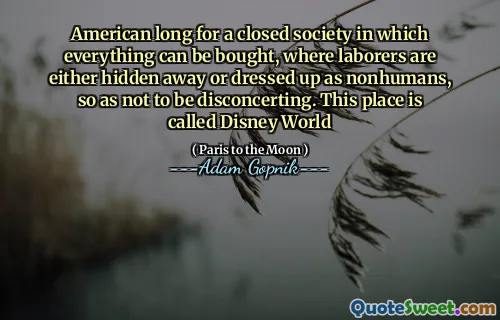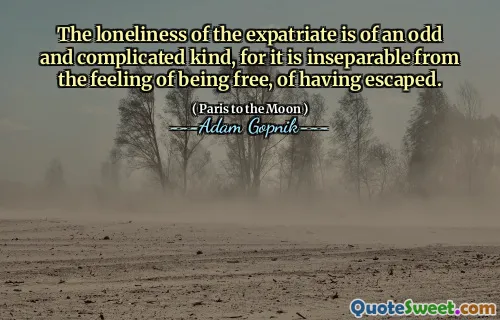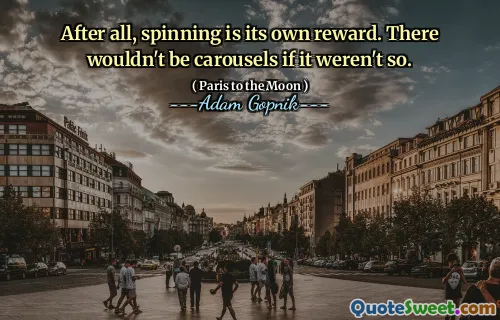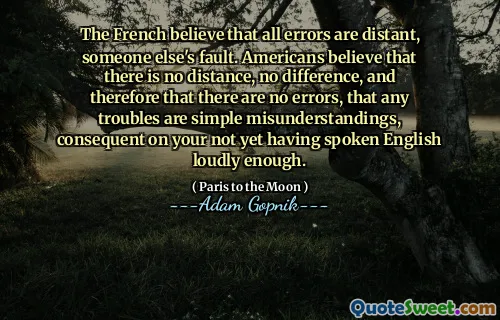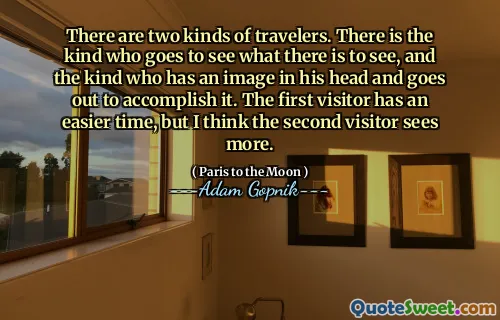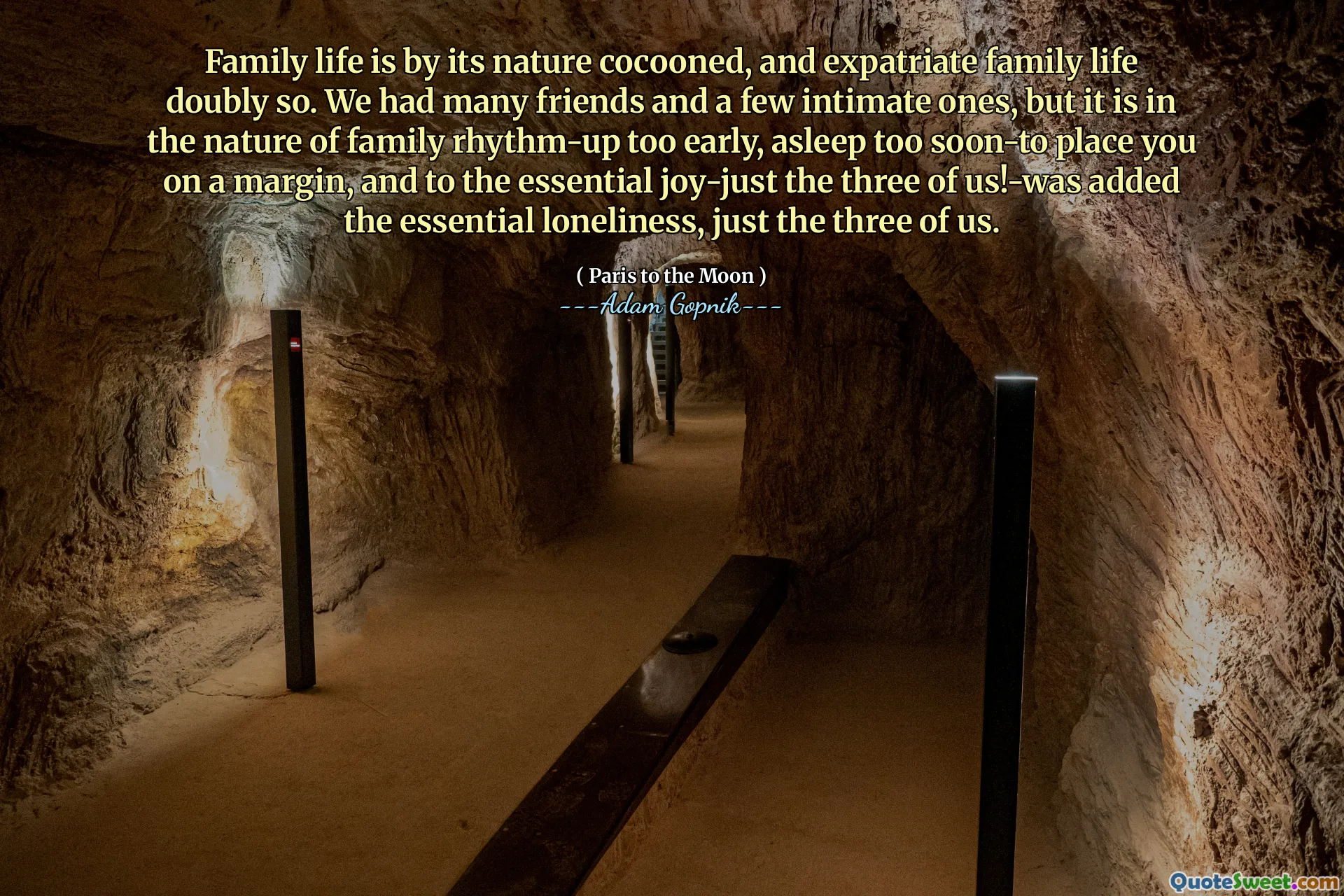
Family life is by its nature cocooned, and expatriate family life doubly so. We had many friends and a few intimate ones, but it is in the nature of family rhythm-up too early, asleep too soon-to place you on a margin, and to the essential joy-just the three of us!-was added the essential loneliness, just the three of us.
In "Paris to the Moon," Adam Gopnik reflects on the unique experience of expatriate family life, which feels even more isolating than typical family life. He observes that while they had a network of friends, family dynamics often create a sense of separation from the broader community. The routines of family life—waking early and sleeping early—can make them feel marginalized, emphasizing their solitary existence as a family unit.
Gopnik highlights the contrast between the joy of sharing moments as a close-knit family and the inherent loneliness that accompanies it. Their experiences, though filled with happiness in their little family world, are tinged with a sense of being apart from others. This duality captures the complexities of maintaining a vibrant family life while living in a foreign culture, where the joys of family can also lead to feelings of isolation.

